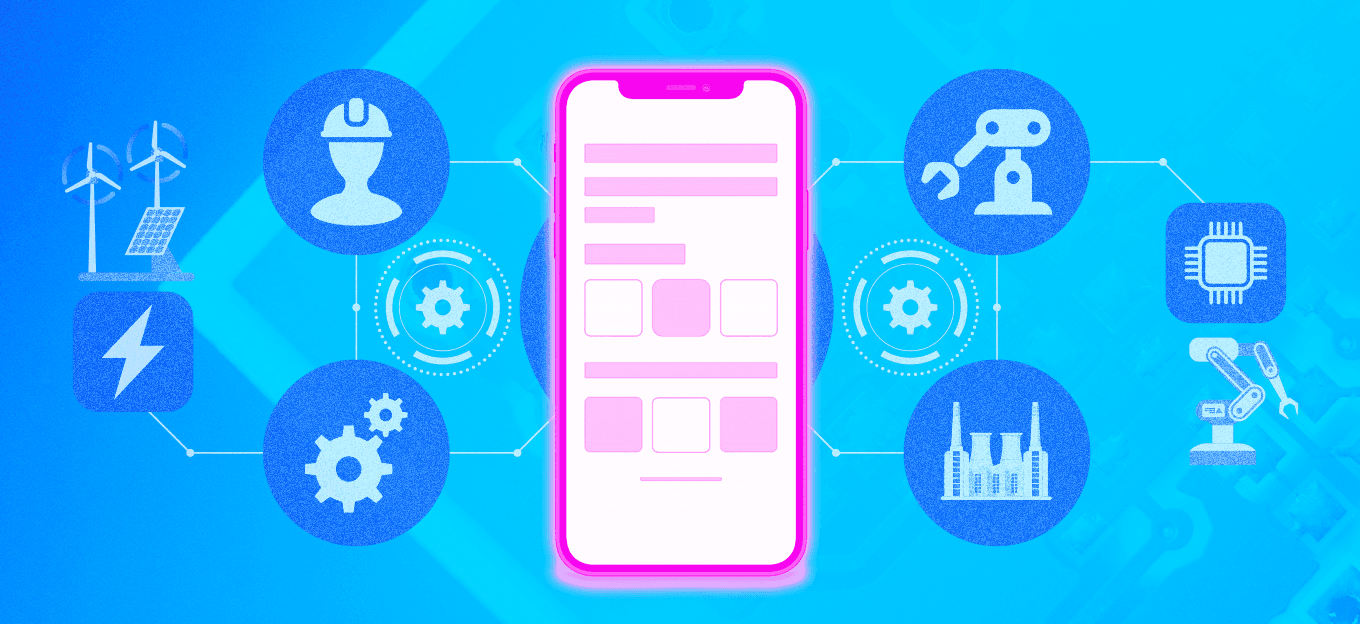Construction Management Through Cloud and Mobile Apps
Construction Management Through Cloud and Mobile Apps
- Last Updated: December 2, 2024
Guest Writer
- Last Updated: December 2, 2024



A seminal 2016 McKinsey article pegged the construction industry as the second to last digitized with languishing productivity rates. And today, we face new challenges. A more recent McKinsey study revealed that as many as 90 percent of survey respondents believed that skilled labor shortages would have a high impact on construction, leading to fierce competition for skilled trade talent. We will discuss the changing construction landscape and how a meteoric rise in venture capital funding backing contech is disrupting an industry that has historically been rife with data fragmentation. We will also explore how cloud-based software and construction management apps, for virtually any workflow, are helping contractors and sole proprietors of construction businesses put particular emphasis on what construction pros require when choosing their digital tools of trade.
'The surging usage of mobile productivity apps among contractors is promising, but more telling and encouraging is the industry’s demand for software integrations.' -Lucas Marshall
The Modern Craftsperson is Evolving
Employment in craftsmanship and the skilled trades is rapidly being reinvented, with some 75 percent of tradespeople fluidly shifting their work mix of residential homes year-to-year in response to changing demand, changes in wages offered for similar work, and changing companies.
With these new challenges, the keyword is automation. Enter: Digitization and mobile apps to streamline workflows (adoption within the last year alone):
- 21 percent of tradespeople reportedly turned to third-party financing for clients.
- 36 percent adopted new tools for meetings.
- 39 percent adopted digital tools for planning.
- 47 percent adopted digital payment apps.
Change is afoot for modern trades and craftspeople. Now, what about the larger scale construction C-suite?
Digitization & Software Interoperability
Faced with worrying labor shortages and lingering effects of a global pandemic, construction business owners, similarly, need to be smarter about their workflows in search of those pesky, productivity-killing processes that are affecting how much they can accomplish with fewer talent resources available.
We all know that the construction industry is long overdue for digitization overall. Historically, construction processes have been fragmented, often clunky, and manual.
As the previously mentioned McKinsey study summarizes:
"Project-based construction process involves many steps with scattered accountability and a multitude of active entities in every project—from several specialist engineering and planning to multiple contractors and sub-contractors and myriad material suppliers. Since the level of collaboration across the value chain is low, the result is a siloed ecosystem where companies tend to manage their own risk and frictions at the interfaces are high."
However, a promising JBKnowledge report found that construction pros’ use of mobile apps is on an upswing. The top reasons companies use mobile devices in the field, according to JBKnowledge, include the following:
- 62 percent for daily reporting.
- 60 percent for photo/video.
- 57 percent for time management.
- 49 percent for safety management.
- 43 percent for plan management.
- 32 percent for building information modeling (BIM) file viewing.
- 26 percent for tool tracking.
- 10 percent construction drone
The surging usage of mobile productivity apps among contractors is promising, but more telling and encouraging is the industry’s demand for software integrations. After all, when platforms don’t integrate, construction professionals find themselves replacing one problem for another, finding themselves having to manually import data and level set between cross-functional teams’ respective tech stacks.
Just as mobile apps are emerging in the industry to help contractors execute on any facet of a construction workflow, so too is the industry’s willingness to come together in collaboration and build integrations that empower the entire construction process.
4 Existing Construction App Integrations
#1: PROCORE®
A leading construction management app that offers an app marketplace. Construction companies can search for existing software integrations, find documentation to set them up, or become a partner.
#2: Ryvit
A company that specializes in building integration connectors between software platforms, helping to eliminate duplicate data entry, rampant data errors, and silos.
#3: Oracle Industry Lab
This provides construction pros with a hands-on, immersive experience and drives innovation with the help of a growing partner ecosystem.
#4: The Construction Progress Coalition (CPC)
This provides the industry with a meaningful industry dialogue, from which meaningful executables are developed to help contractors become more productive through process improvement and automation.
Construction Management Apps
So, what are some of the top construction management apps used by professionals? Here are the most popular mobile apps used by construction companies based on workflow.
Apps for Construction Management
- Procore: 60.6 percent
- Bluebeam (Revu): 54.4 percent
- PlanGrid: 41.2 percent
- Cloud Storage: 35.8 percent
- BIM 360 Docs: 22.9 percent
- Viewpoint for Projects: 7 percent
- Fieldwire: 4 percent
Apps for Safety Management
- Procore: 38.2 percent
- PlanGrid: 14.3 percent
- Bluebeam (Revu): 14 percent
- Safety Reports: 10.6 percent
- iAuditor: 8.7 percent
- BIM 360 Field: 8.5 percent
- Safesite: 2.4 percent
- CCS Safety: 1.9 percent
- Raken: 1.7 percent
- HammerTech: 1.4 percent
- EHS Auditor: 1.2 percent
- GoCanvas: 1.2 percent
- Fieldlens: 1 percent
Tool Tracking Apps
- ToolWatch: 21.4 percent
- Hilti On!Track: 20 percent
- Milwaukee One-Key: 12.3 percent
- DEWALT Tool Connect: 8.2 percent
- ShareMyToolbox: 4.1 percent
- Gigatrak: 2.7 percent
Construction Software
Here is the most popular construction software used by construction companies based on workflow.
Estimating Software
- Custom In-House Software: 17 percent
- AccuBid: 13.7 percent
- Sage Estimating: 13.3 percent
- WinBid by Plexxis: 9.4 percent
- QuickPen: 8.9 percent
- HeavyBid: 5.6 percent
- Viewpoint: 4.6 percent
- DESTINI Estimator: 4 percent
- ESTmep: 3.7 percent
- B2W: 3.5 percent
- Planswift: 3.3 percent
- WinEST (Trimble): 2.9 percent
- HardDollar/InEight: 2.5 percent
Project Management Software
- Procore: 46.2 percent
- PM | Accounting by Plexxis: 14.3 percent
- Custom In-House Software: 13 percent
- Viewpoint Team: 6.9 percent
- eSub: 3.7 percent
- Sage Construction Project Center: 3 percent
- HCSS HeavyJob: 2.4 percent
- Dexter + Chaney: 2.2 percent
File Sharing & Storage Software
- OneDrive: 49.7 percent
- DropBox: 39.1 percent
- SharePoint: 33.4 percent
- Google Drive: 21.8 percent
- Procore Drive/Sync: 19.1 percent
- Box: 10.3 percent
- Microsoft Azure: 9.2 percent
- Citrix ShareFile: 6.4 percent
- Egnyte: 5.8 percent
- Amazon S3: 2.8 percent
The Future of Digitization in Construction
Moving early-stage construction offsite and into prefab shops, where modular components can be prebuilt or 3D printed can take away stressors related to scheduling problems, labor shortages, and cyclical weather conditions.
Mastering the supply chain can vanquish construction downtime. Adopting Internet of Things (IoT) technology including tracking tags, GPS trackers, and other equipment tracking hardware and integrated software can help maintain continued visibility through construction projects and ensure equipment-related snafus are circumvented. Construction robots can help automate more dangerous, tedious installations onsite, while smart tools can help streamline processes, reduce repetitive motion injuries users experience over a career, and deliver faster, more accurate connections
The future of construction is one that not only embraces data insights and leverages cloud-based, construction management mobile apps to streamline the workflows of one team, but also embraces cross-functional collaboration and software integration. Data should flow seamlessly and be equally accessible to all teams—and those teams can come together, make sense of and connect the big data ocean into channels from which actionable insights are drawn.
The Most Comprehensive IoT Newsletter for Enterprises
Showcasing the highest-quality content, resources, news, and insights from the world of the Internet of Things. Subscribe to remain informed and up-to-date.
New Podcast Episode

Moving Past the Pilot Phase in IoT and AI
Related Articles





